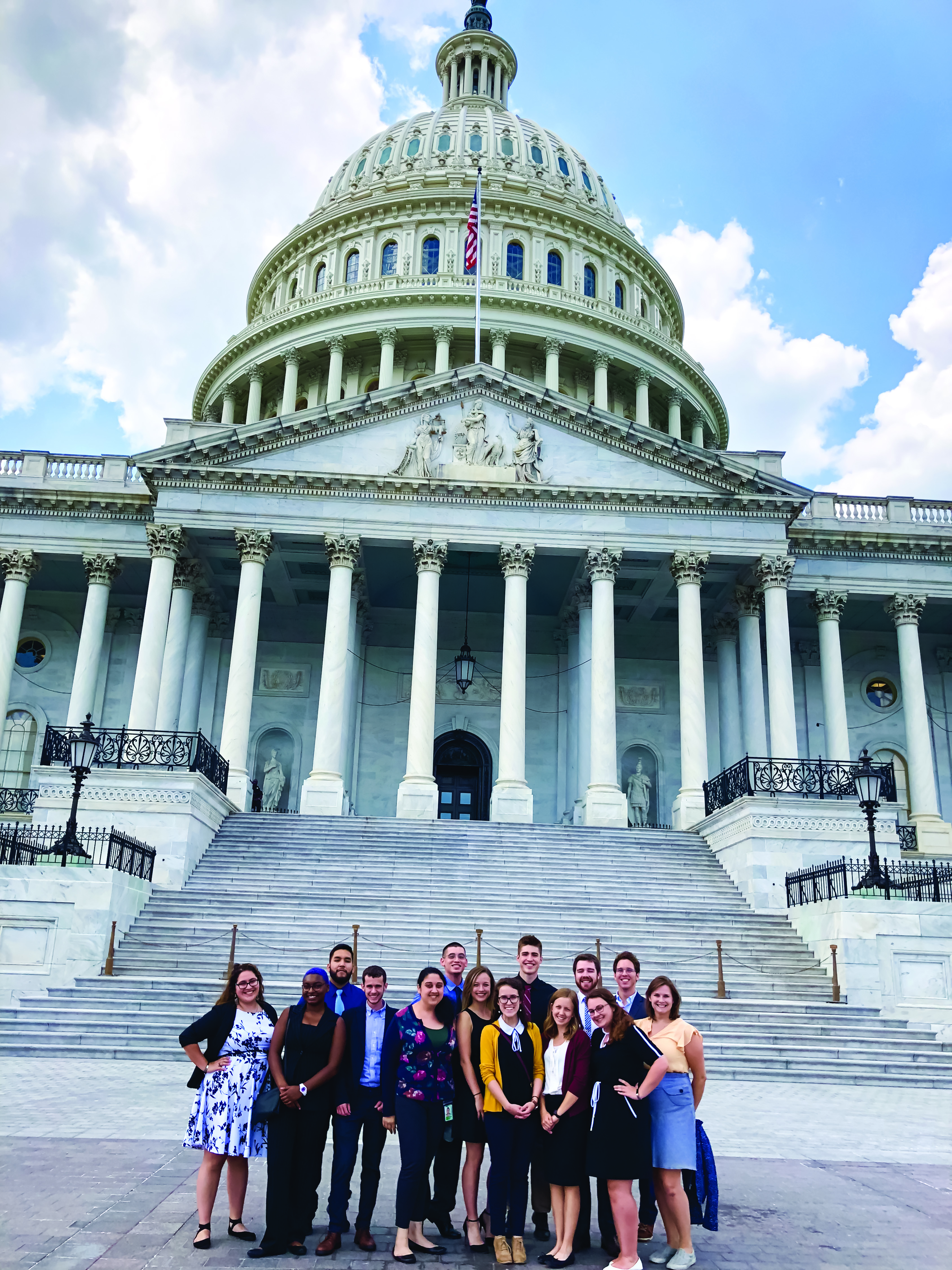Pathways to a Career in Science Policy
Fall
2024
Feature
Pathways to a Career in Science Policy
Kendra Redmond, Editor
If you’re passionate about science but more drawn to its big-picture societal implications than research and you lean into politics or advocacy work, you might want to explore career options in science policy.
“The traditional way to think about science policy is science for policy or policy for science,” says Anna Quider, a science policy consultant with a PhD in astrophysics. The field encompasses both types of interactions, she says.
Doing science for policy means providing scientific expertise to policymakers. This includes activities like collaborating on reports, panels, or advisory committees to provide science-based advice on policy issues related to energy, public health, national security, international relations, and many other areas. It can also mean analyzing the impact of policy on a science-related area.
Doing policy for science often entails analyzing or communicating how governmental decisions will impact what science gets done, under what conditions, and by whom, explains Quider. This includes wide-ranging policy topics from immigration to intellectual property and science funding. “When the government is considering policy for science, the community has to weigh in about good policy and unintended consequences,” says Quider.
Scientists often participate in science policy as an ad hoc activity, but many people with science backgrounds have fulfilling careers in the field. Science policy jobs aren’t usually limited to people with a science degree, though, so it may take a little extra work to identify them. In addition, many of the common job titles—public policy specialist, policy advisor, or legislative analyst—don’t mention science.
An advanced degree in science policy may open some doors, but many people get into the field by jumping right in after undergrad, often as interns or fellows. There are also fellowships for PhD scientists, which is the pathway Quider utilized.
Science policy jobs exist in a wide range of settings: professional societies, universities, congressional committees, private companies, national and private labs, governmental agencies, lobby groups, think tanks, nonprofit organizations, and more.
As a physics or astronomy major, exploring science literacy, economics, politics, and government can help you prepare for a career in science policy. Being able to distill a complex report or policy into key points—the bottom line—is a valued skill, as is being able to communicate clearly. Nothing beats hands-on experience, though. Quider suggests working, interning, or volunteering with organizations that have a policy bent, even if you can’t find one specifically in science policy.
Opportunities in Science Policy
The path into science policy is less defined than for some other careers, but getting a foot in the door is key. Don’t know where to start? Here’s a nonexhaustive list of science policy–related internships for undergraduates and recent graduates:
- Society of Physics Students summer internships in policy, including the AIP Mather Policy Internship, spsnational.org/programs/internships
- Congressional office internships: check with your school and the websites of individual members, committees, and caucuses for opportunities
- DOE Energy Efficiency and Renewable Energy Science, Technology and Policy Program, energy.gov/energysaver/energy-efficiency-and-renewable-energy-science-technology-and-policy-program
- Federal Internship Finder, gogovernment.org/federal-internship-finder
- IDA Science and Technology Policy Institute fellowships, ida.org/careers/students-and-recent-graduates/internships-and-fellowships/science-policy-fellowship
- NIH Office of Science Policy summer internships, osp.od.nih.gov/get-involved/osp-summer-internship-program
- Sea Grant Community Engaged internships, seagrant.noaa.gov/community-engaged-internship
- USAID Pathways, usaid.gov/careers/student-internships
- Virtual Student Federal Service internships (part-time, academic year), careers.state.gov/interns-fellows/virtual-student-federal-service
- White House Office of Science & Technology Policy internships, whitehouse.gov/get-involved/internships/ostp-internships

